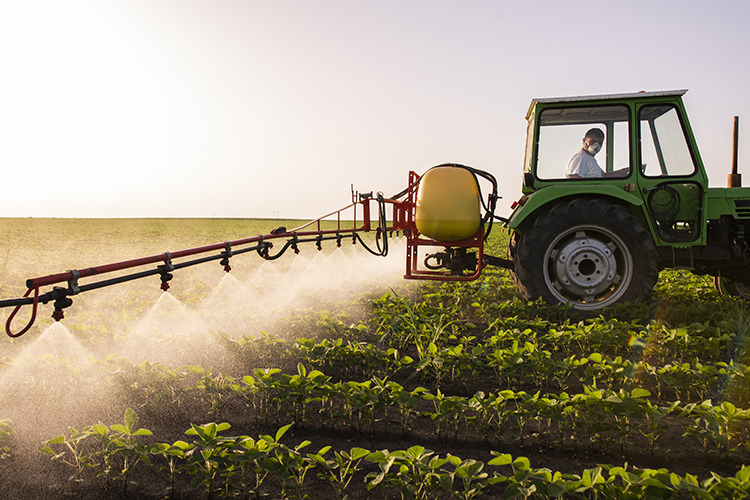
The federal government is preparing a set of measures to encourage the production and consumption of biomethane, a gas produced from the decomposition of organic materials, equivalent to natural gas of fossil origin, whose main manufacturing potential is in agriculture. The measures, which will be announced on March 21, involve tax relief on investments and attraction of international resources, according to a source who followed the discussions.
The first measure will be a decree by the Ministry of Mines and Energy to include investments in biogas and biomethane in the Special Incentive Regime for Infrastructure Development (REIDI), which suspends social taxes PIS and Cofins on contributions in new industries in the segments of infrastructure and mobility. The tax exemption is expected to reduce the cost of investments in biomethane by 9%.
The measure is supposed to equalize the tax treatment of biomethane projects to that of natural gas, which are already included in REIDI and, therefore, have the tax break. As it stands today, investments in natural gas of fossil origin end up in practice having an economic advantage over investments in biomethane, which avoid methane emissions.
The second measure will come from the Ministry of the Environment, which is expected to issue a decree to expand the resources of the Climate Fund, managed by the Brazilian Development Bank (BNDES), aimed at investments in biogas and biomethane. The expectation is to guarantee an offer of around $500 million in financing for the sector.
Biogas is already one of the energy routes planned for financing the Climate Fund’s renewable energy sub-program. Current rates range from 1.9% to 5.4% in indirect operations and stand at 1.9% in direct operations. The term of the financing agreements is 16 years, with a grace period of up to eight years.
The two decrees come as after the country joined the Global Methane Pledge during the last COP26, by which 100 countries committed to cutting gas emissions by 30% by 2030. Brazil is the fifth largest emitter of methane in the world, but the main culprit is the cattle’s enteric fermentation (belching and flatulence), which accounts for more than half of the country’s methane emissions.
Environment minister Joaquim Leite has said in recent public statements that the government also intends to create a “methane credit” instrument, along the lines of a carbon credit, which could serve as additional revenue for biomethane production projects.
In a recent event by consultancy Datagro, Mr. Leite said that methane credits could guarantee extra income to biomethane producers, both related to methane that ceases to be released into the atmosphere with the biodigestion of waste, and related to diesel that is no longer consumed in heavy vehicles and is replaced by renewable gas. The tool, however, will not be announced next week.
In recent months, ministry officials have met with representatives of the private sector to discuss the new measures. There was also a request to make the environmental licensing requirement more flexible for biogas projects with up to 10 megawatts in power.
Source: Valor International


/i.s3.glbimg.com/v1/AUTH_37554604729d4b2f9f3eb9ad8a691345/internal_photos/bs/2022/F/l/KGqrTyTuC0xdhw6ofpoA/17emp-100-brask-b1-img01.jpg)
/i.s3.glbimg.com/v1/AUTH_37554604729d4b2f9f3eb9ad8a691345/internal_photos/bs/2022/i/B/CulsCBT8eEcGFVqqSVzA/76637742-brasil-20-20bras-c3-adlia-20-20bsb-20-20pa-20-2009-05-2018-20-20pa-20-20-20lift-bc-20o-20presidente-20do-20banco-20central.jpg)
/i.s3.glbimg.com/v1/AUTH_37554604729d4b2f9f3eb9ad8a691345/internal_photos/bs/2022/H/M/aVZAZJSJmFGM9OFntyPA/16bra-200-indigenas-a2-img01.jpg)

/i.s3.glbimg.com/v1/AUTH_37554604729d4b2f9f3eb9ad8a691345/internal_photos/bs/2022/u/C/fAf8NgTria5Sk1SmLA6w/13bra-200-acende-a2-img01.jpg)
/i.s3.glbimg.com/v1/AUTH_37554604729d4b2f9f3eb9ad8a691345/internal_photos/bs/2022/7/f/1hZgjYRxi9zeQtLxetEw/040322unigel027.jpg)
/i.s3.glbimg.com/v1/AUTH_37554604729d4b2f9f3eb9ad8a691345/internal_photos/bs/2022/S/W/15ynjaQ8q0lDWHWvUFKQ/15fin-100-fusao-c6-img01.jpg)